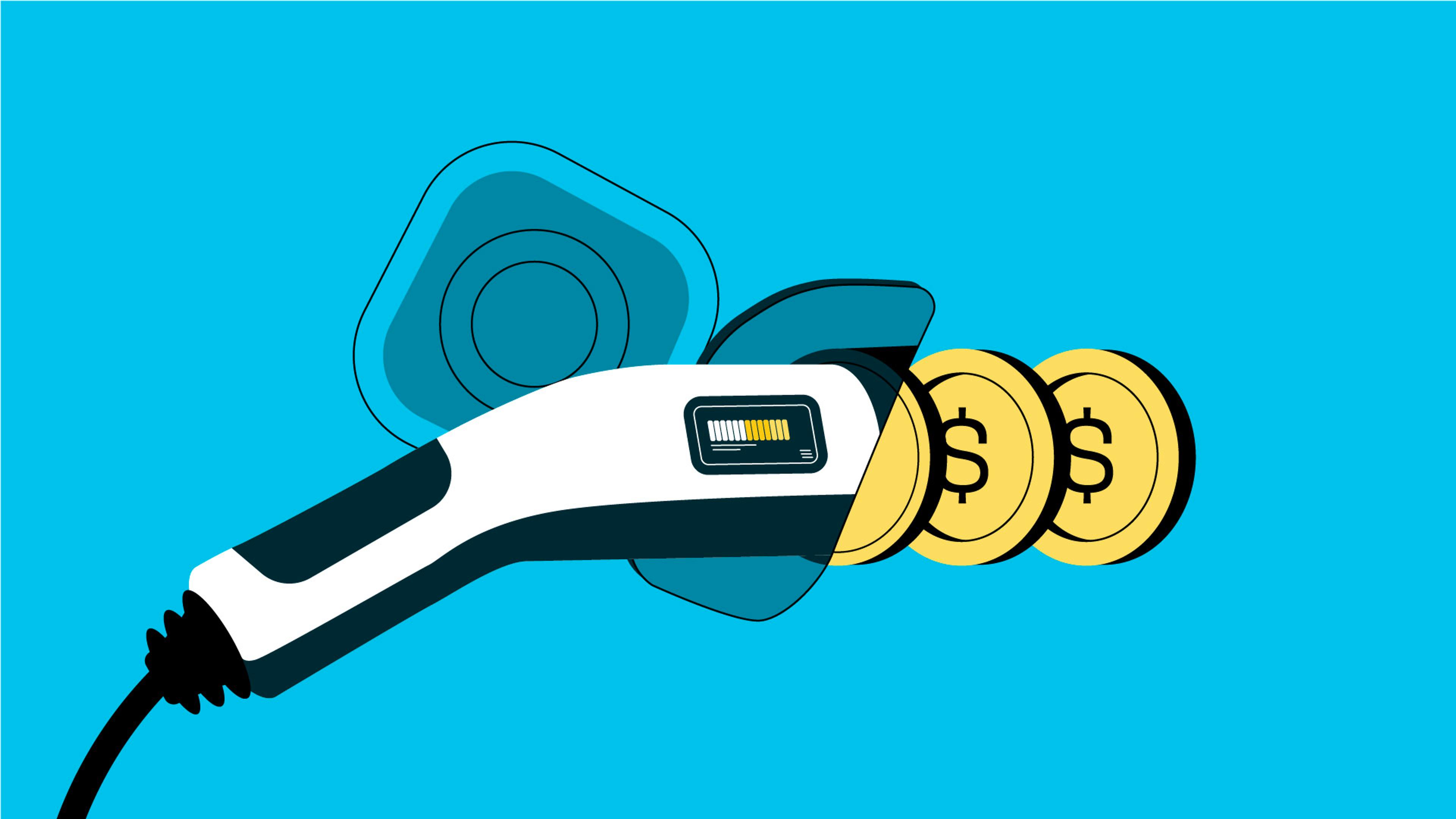04/04/2023
How much does it cost to charge an electric car?

With electric vehicles rapidly replacing traditional cars, many first-time buyers wonder how much electricity an EV needs.
Knowing your battery’s size and local electricity rates can help you determine the costs of owning an electric car. Here’s everything you need to know about electric vehicle charging options and their affordability.

Need help buying a used car?
Enter a VIN code to learn more about any vehicle!
Cost of charging an electric car
An average electric vehicle (EV) can drive 3 to 4 miles with 1 kWh. This is only a rough estimate, as the exact range depends on your car’s model, weather conditions, terrain, and battery. However, you can assume that to drive 100 miles, you’ll need around 25-33 kWh.
If you rely on public charging stations, you’ll pay more for charging an electric car than someone with a charging point installed at home. Since EVs have limited ranges, you can’t expect to avoid public charging completely.
Electric car charging options
Whether you prefer charging your car at home or public charging stations, the costs can vary significantly. However, owning an electric car is still cheaper than gasoline or diesel vehicles.
Cost to charge an electric car at home
Plugging your car into a standard household electrical outlet is the simplest way to charge it at home. This method is called Level 1 charging. However, it has a major drawback, as it’s the slowest charging method, providing only 3-5 miles of range in an hour of charging. If you need to charge your battery fully, it can take 1-4 days.
The most popular charging method that you can install near your house is Level 2, providing up to 30 miles of range in an hour of charging on average.
How much it costs to charge an electric car at home depends on your EV’s battery capacity. If your vehicle has a 50 kWh battery, you’ll need 50 kWh of electricity to charge it fully. Let’s say that electricity costs $0.15 for 1 kWh, meaning that you’ll pay $7.5 to charge your battery from 0 to 100%.
Building a charging station
Building a Level 2 charging station at home is the most popular charging option among EV owners. This way, you’ll be able to charge your car’s battery overnight and ensure it's ready the next morning. The cost of charging at home is lower than in public charging stations, so you’ll not only have more flexibility with your own charging point but also save money in the long run.
How much does a charging station for an electric car cost?
Expect to pay between $700 and $2,000 for hardware and installation. While this may seem steep for some drivers, it will eventually pay off.
Cost to charge an electric car at charging stations
While most drivers rely on home charging, public charging is also widespread, especially among people covering long distances. How long it takes to charge an electric car can be estimated by knowing the type of charging station you choose. The fastest charging option is Level 3, which can charge your battery up to 80% in 30 min.
When the battery’s level reaches 80%, the last 20% will take more time to charge – usually another 30 min or more.
However, the exact charging time depends on the temperature, your battery’s condition, current battery level, its capacity, and the charging station. When manufacturers claim that you can charge a battery in a certain amount of time, they’re usually referring to ideal conditions. In truth, it may take a bit more to charge an EV’s battery than they declare.
While Level 3 charging is much faster than Level 2, it’s also more expensive. However, Level 3 charging stations are less common, so you definitely won’t find them on every corner.
The faster the charging, the higher the rate
Some Level 2 charging stations may be free of charge to encourage people to choose an EV over a car with an internal combustion engine. However, in paid charging stations, you can expect to pay between $1 and $5 for an hour of Level 2 charging.
Most Level 3 charging stations bill drivers per minute. It can cost $15 on average to charge your vehicle. The exact price may vary depending on your location and a particular station. If you want to know how fast an electric car charges, your battery’s capacity and the charging speed of a station may help you calculate the time needed to charge your EV.
Free public charging stations are disappearing
A few years ago, many people shifted towards electric vehicles because public charging was free. Nowadays, while some restaurants, schools, and other institutions still offer free charging stations for their clients or workers, free charging stations in various public areas are rapidly disappearing.
Don't buy an electric vehicle just because you know a free charging station nearby. Governments are gradually removing various incentives for EV buyers and owners, therefore, free EV charging is becoming a thing of the past.
Finding the right plug to charge an EV
There are 4 types of EV charging plugs: 2 for AC (type 1 and type 2) and 2 for DC (CHAdeMo and CCS).
Before planning longer trips and visits to charging stations, make sure to explore what kind of connectors they support. Otherwise, you can end up with an empty battery in a station, which isn’t compatible with your electric vehicle.
The most convenient way is using local EV charging station apps that will provide you with all the necessary information, such as charging prices and the type of connectors supported.
Saving money on your EV road trip
While using an EV for daily commuting is rather convenient, as most cities have at least some public charging infrastructure, going on a road trip requires more planning. Far from major cities, charging stations can be scarce, and you may need to drive extra miles just to get to the closest charging point.
A car’s battery degrades over time, providing less range, therefore, you need to plan your trip accordingly.
There are a lot of route planners that help you to find charging stations along your way and avoid ending up with a drained battery.
Cheaper ways to charge an EV
Every owner wants to save money on charging, especially when going on a road trip that may include covering several thousand miles. Here are some tips to save money and charge your EV:
- Choose a hotel with a charging station.
- Charge at off-peak times, as some stations have different pricing for different times of the day.
- Some credit card companies give rewards for each $1 spent on charging. They also provide drivers with services like towing in case your battery is completely dead.
- Get yourself a charging subscription, as it can help to save money in particular charging stations.
While the cost of charging an electric car can vary depending on several factors, EVs are generally cheaper to fuel than gas-powered cars. With careful planning and use of charging strategies, you can reduce your charging costs even further.

Check your VIN
Avoid costly problems by checking a vehicle's history. Get a report instantly!
